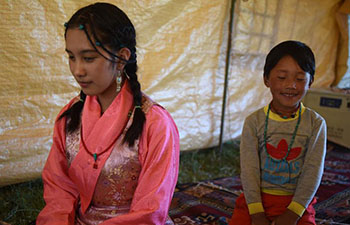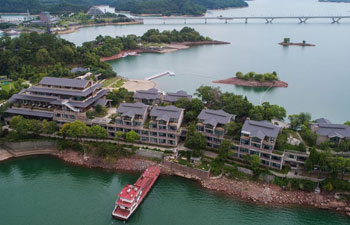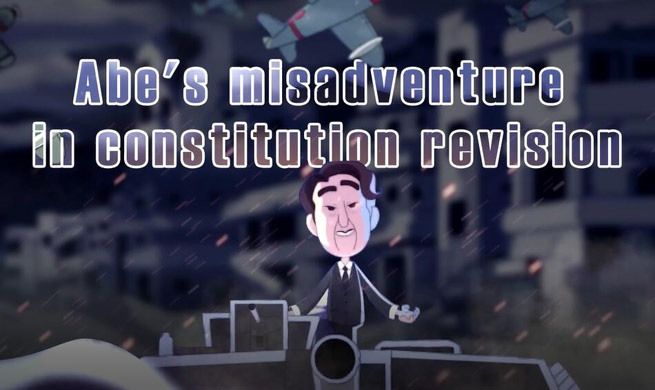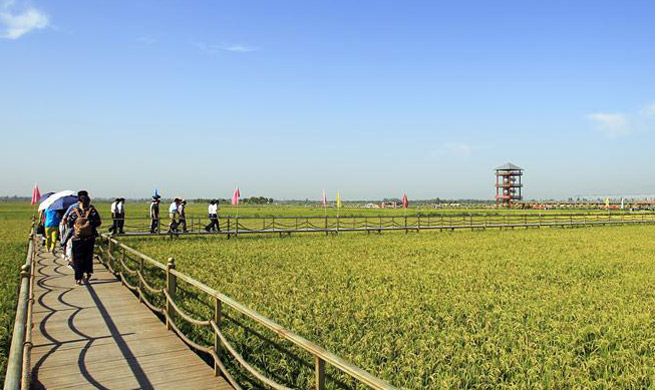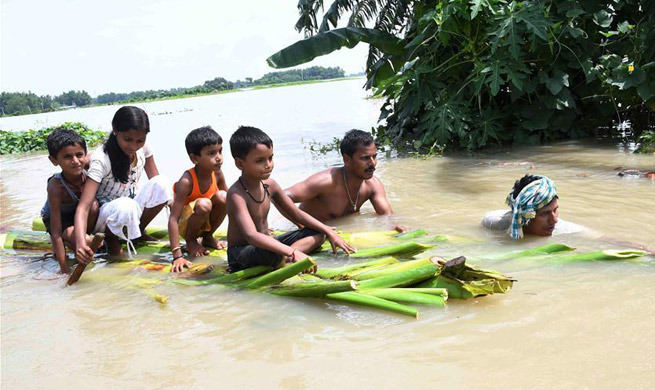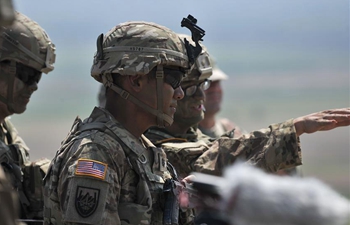SEOUL, Aug. 17 (Xinhua) -- South Korean President Moon Jae-in on Thursday urged a dialogue with the Democratic People's Republic of Korea (DPRK) to be resumed amid signs of de-escalating tensions on the Korean Peninsula.
Moon told a nationally televised press conference that though it does not need to be in a hurry, dialogue between South Korea and the DPRK should be resumed.
More efforts and time would be needed to re-open the dialogue by ending the halt of talks between the two parts in the past 10 years, Moon said.
For the past decade under conservative South Korean governments, talks between South Korea and the DPRK had almost been suspended over Pyongyang's nuclear tests and ballistic missile developments.
During the press conference to mark 100 days in office, Moon said dialogue could not be aimed at dialogue itself as any launch of dialogue should have conditions and belief, under which that dialogue would bear good fruits.
Moon, who took office on May 10, said the dialogue atmosphere would be created should Pyongyang at least stop further provocations.
The president said he could sufficiently consider dispatching a "special envoy" to Pyongyang if it helps improve inter-Korean relations and helps resolve the nuclear issue on the Korean Peninsula under that dialogue atmosphere.
Tensions eased on the peninsula after U.S. President Donald Trump said on his Twitter account that top DPRK leader Kim Jong Un made a "wise and well reasoned" decision not to fire missiles towards the U.S. island of Guam.
According to the DPRK's official KCNA news agency, Kim had decided to delay the missile launch to wait and see what the United States would do next.
The war of words between Pyongyang and Washington had escalated tensions on the peninsula. Trump warned the DPRK last week that the country would be met with "fire and fury" if it continues threat to the United States.
In response, the DPRK warned that it could fire four intermediate-range ballistic missiles towards the Pacific island of Guam, leading to Trump's warnings that the U.S. military was "locked and loaded."
The South Korean leader told the press conference that President Trump had agreed to fully consult with and get consent from South Korea in advance no matter what options Trump and his country would use towards the DPRK.
Moon assured people that there would never be any more war on the Korean Peninsula, pledging to prevent war from breaking out by all means. It was the reiteration of his comments made Tuesday to mark the 72nd anniversary of the peninsula's liberation from the 1910-45 Japanese colonization.
The president stressed the importance for an international agreement, citing the unanimous adoption of a new UN Security Council resolution toughening sanctions on Pyongyang, which ban exports of mineral and seafood.
The sanctions, Moon said was aimed to prevent war and to force the DPRK to come to the dialogue table.
He reiterated his position that it would be only South Korea that can decide on military actions on the peninsula, saying nobody can decide on military actions without the consent of South Korea.
Asked about what would be a red line, which President Moon had warned Pyongyang not to cross, he said it was to weaponize a nuclear-tipped missile by completing a technology of what DPRK called intercontinental ballistic missile (ICBM) mounted with nuclear warhead.
Pyongyang tested ICBM twice in July. In the late-July launch, the ICBM was lofted as high as about 3,700 km and traveled some 1,000 km.
Moon said the DPRK was gradually nearing the red line, emphasizing that Pyongyang's further provocation should be stopped at this stage.
He warned Pyongyang that if it conducts provocations again, it would face tougher sanctions and eventually cannot endure them, urging the country to stop any dangerous provocation.
Moon was widely forecast to inherit the so-called "Sunshine Policy" of engagement with the DPRK through economic cooperation and the exchanges of sports, culture and the personnel, which Moon's liberal predecessors advocated.
His policy was sometimes called "Moonshine Policy" for some of its unique features, but there was no big difference between Moon and his predecessors in seeking dialogue and shunning military tensions.






